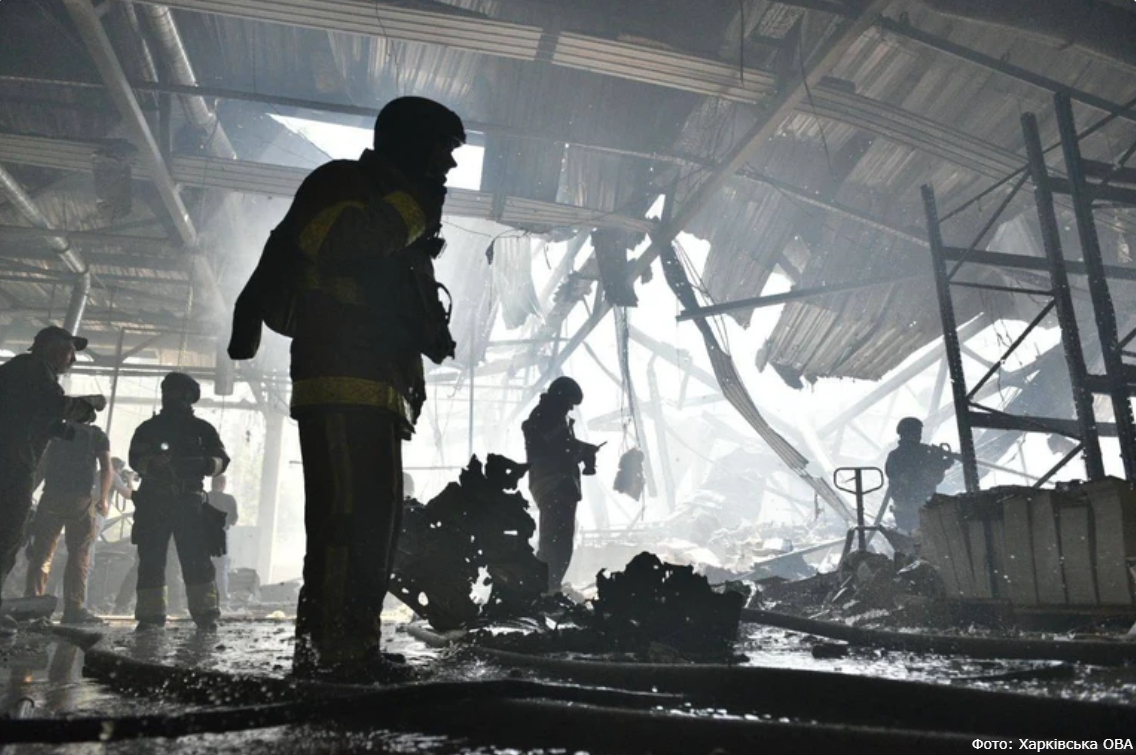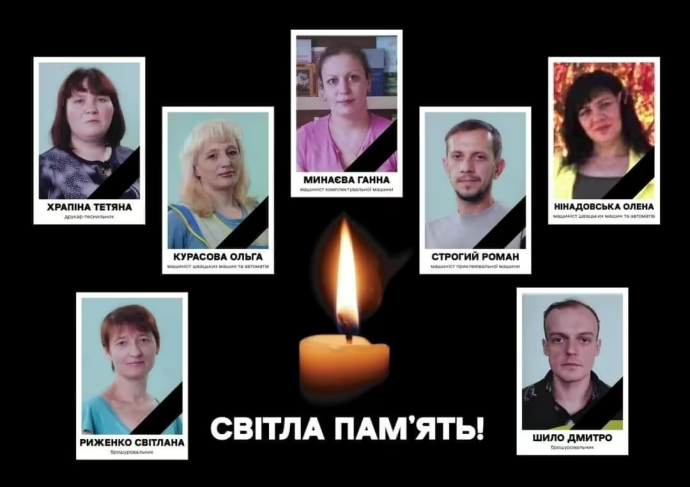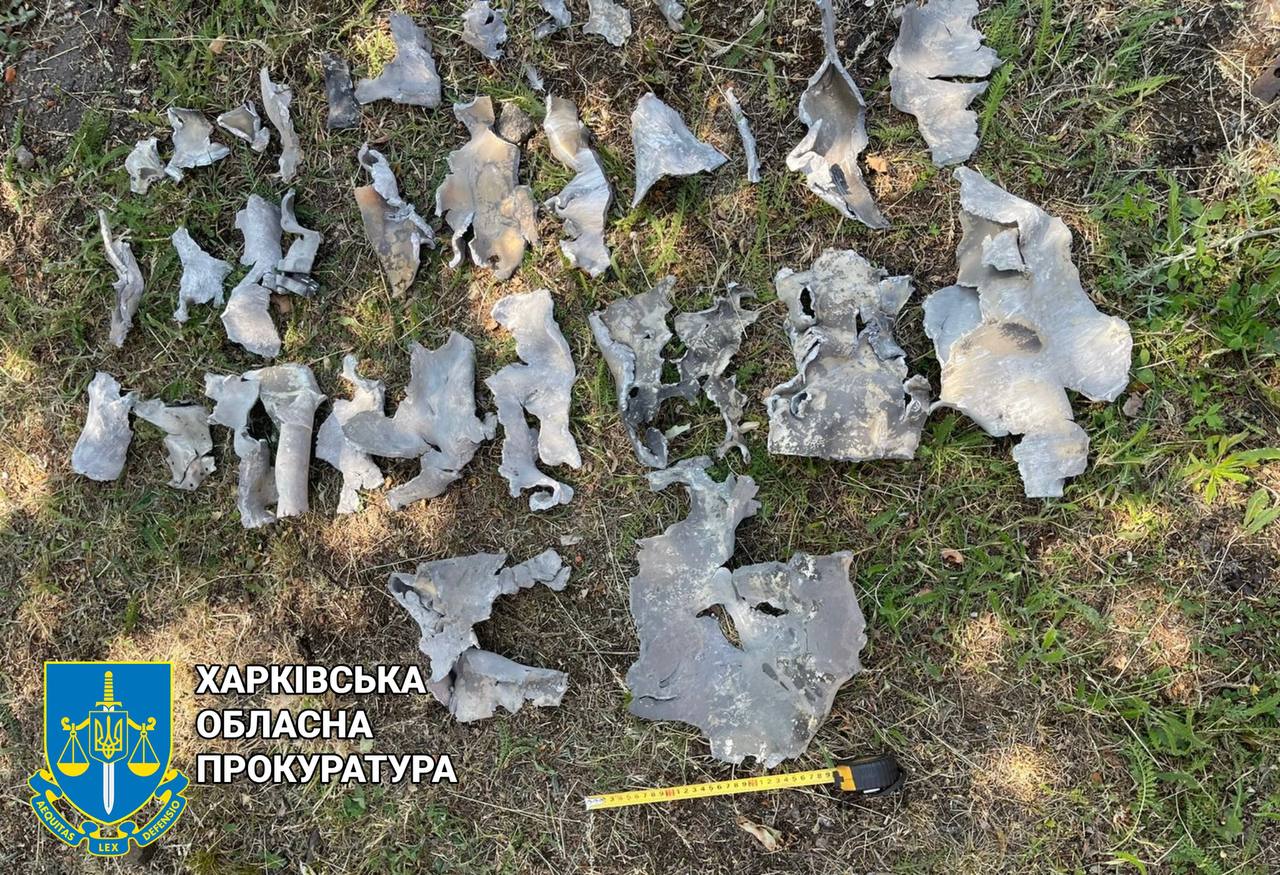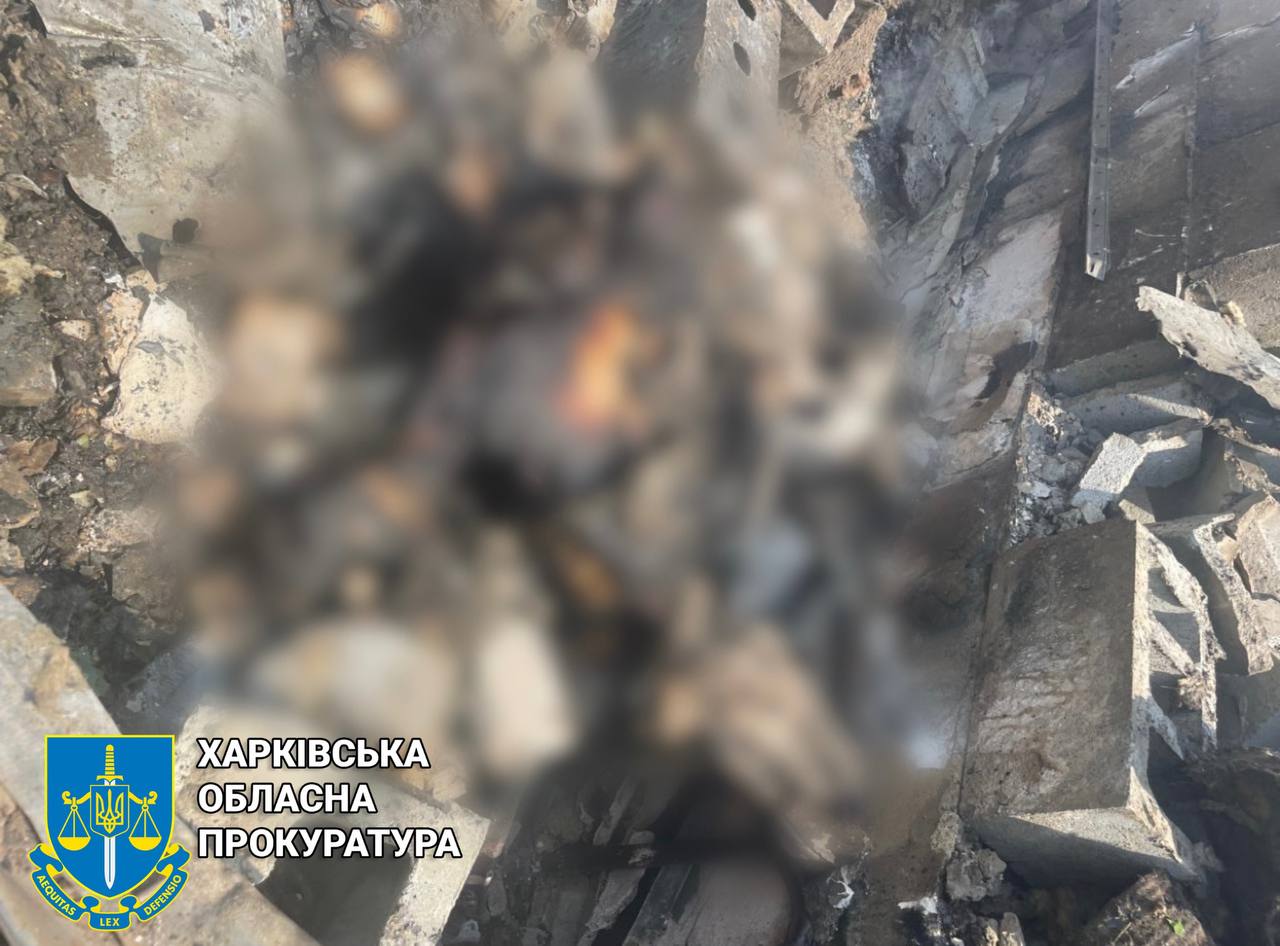Russians killed at least seven, injured 22 civilians in their missile attack on Kharkiv oblast and destroyed Vivat publishing house (updated)
Russian forces delivered about 15 strikes with S-300/S-400 missiles on the civilian infrastructure of Ukraine’s second-largest city, Kharkiv, and the Kharkiv Oblast on May 23, 2024. The strikes hit the Vivat publishing house Faktor-Druck workshop, among other targets. In total, the attacks killed seven people and injured 22 more, according to Ukrainian officials.
Oleksandr Filchakov, Head of Kharkiv Oblast Prosecutor’s Office, noted that two Russian missiles hit the territory of a printing house in Osnovianskyi district. There were more than 50 employees there at the time of the attack.
Yuliia Orlova, Director of Vivat Publishing House, confirmed in the Ukrainska Pravda. Culture that the attack targeted their publishing house. In her comment, Orlova explained that the fire hit the Factor-Druk printing house, which primarily prints Vivat’s books. Orlova added that it is currently impossible to establish the whereabouts of some people due to the fire.
 Afthermath in the Vivat Publishing House
Afthermath in the Vivat Publishing HouseLater, the Kharkiv Oblast Prosecutor’s Office said that Russian forces had launched a series of strikes with S-300 and S-400 missiles on Kharkiv and the town of Liubotyn starting at 10:30. The Russians hit the territory of a printing house in Kharkiv, claiming the lives of seven people and leaving 21 more injured. The prosecutor’s office noted that all of them were company employees. Efforts are currently underway to clear the rubble.
The Publishing House revealed a list of killed co-workers:
- Tetiana Khrapina, a print operator;
- Roman Strohyi, a glueing machine operator;
- Svitlana Ryzhenko, a brochure maker;
- Olha Kurasova, an automatic sewing machine operator;
- Olena Ninadovska, an automatic sewing machine operator;
- Hanna Mynaieva, a finishing machine operator;
- Dmytro Shylo, a brochure maker.
 Seven Vivat workers were killed and 22 others injured in a direct Russian strike
Seven Vivat workers were killed and 22 others injured in a direct Russian strike
The Faktor-Druck printed books for publishers such as KSD, Ranok, Folio, Svіchado, Zelenyy Pes, and others.
President Volodymyr Zelenskyy reported 50,000 books were burnt in that attack. Yuliia Orlova published an open letter, stating, “We are witnessing how Russian society, demonstrating its low level of development, destroys what constitutes European values.”
In her letter, she elaborated that one of the key companies in the publishing industry, Factor-Druk, is one of the largest full-cycle industrial printing facilities in Eastern Europe, producing books for all but a few Ukrainian publishers.
She explained that a printing press of this magnitude stopping its work can affect Ukraine’s entire book publishing field since it printed everything from school textbooks and children’s literature to books on the current war and publications in language and history.
The Faktor-Druck has initiated a fundraiser. All donations will be used to support those affected and to restore the printing industry.
Company details/ company Name: CHARITY COMMUNITY FOUNDATION OF KHARKIV “TOLOKA”
Name of the bank: JSC CB “PRIVATBANK”, 1D HRUSHEVSKOHO STR., KYIV, 01001, UKRAINE
Bank SWIFT Code: PBANUA2X
Company address: 106a Sumska Street, Kharkiv, 61002, Ukraine, Kharkiv region, Kharkiv city
Reference: factor druk
EUR IBAN Code: UA633515330000026004052234902
USD IBAN Code: UA233515330000026008052136352
The printing house also outlined ways in which it can be supported:
- Cease cooperation with Russian entities.
- Raise awareness about Russian crimes against Ukraine, particularly those targeting Ukraine’s cultural heritage.
- Donate to medical charities supporting those affected by the conflict.
- Donate to the Ukrainian army.
The city’s mayor, Ihor Terekhov, added that the Russians damaged the transport infrastructure and one of the municipal enterprise units responsible for the city’s essential services.
In addition, the Russians damaged transport infrastructure in the Kholodnohirskyi district. They struck the central part of the town of Liubotyn, leaving eight people injured. The strikes also damaged a park, cars, shops, and transport infrastructure.

Ukraine’s state railway company, Ukrzaliznytsia, said several of its facilities had been damaged in the attack, and a number of its employees had been injured.
Volodymyr Zelenskyy said the attacks on Kharkiv showed that Russia was taking advantage of Ukraine’s lack of air defences.
Supplies of US-made surface-to-air missile systems were delayed by wrangling in Congress over a multi-billion dollar aid package for Ukraine, which was only passed last month, BBC News noted.
Zelenskyy has repeatedly called for more air defense missiles and his allies’ supply of modern fighter jets.
“The Russian terrorists [soldiers – ed.] benefit from the lack of air defense in Ukraine and its inability to destroy the missile launchers of the terrorists at their exact locations near our borders. And this weakness is not our weakness but the weakness of the world which, for more than two years, has not had enough courage to give the terrorists the treatment they deserve,” he said.

Fighting in the Kharkiv Oblast has displaced around 14,000 people, according to the World Health Organization (WHO).
The estimated 189,000 people who remain near the border with Russia face “significant risks due to ongoing fighting”, WHO’s Jarno Habicht said.
Due to combined Russian Armed Forces attacks, the coalition of human rights organisations “Ukraine. 5 a.m.” appealed to partner countries to intensify their actions for providing air defense systems that should protect civilians and objects under the protection of international humanitarian law.
On May 19, 2024, Russian forces launched a deadly morning strike in Kharkiv Oblast, killing at least six people and injuring 28 others.
By way of background, Greek Prime Minister Kyriakos Mitsotakis stated in April 2024 that his country has no intention of supplying Ukraine with either the S-300 or Patriot systems.
Financial Times earlier reported that Greece, Cyprus, and Malta opposed EU measures aimed at Russia’s so-called “shadow fleet” consisting of semi-legal oil tankers.


















